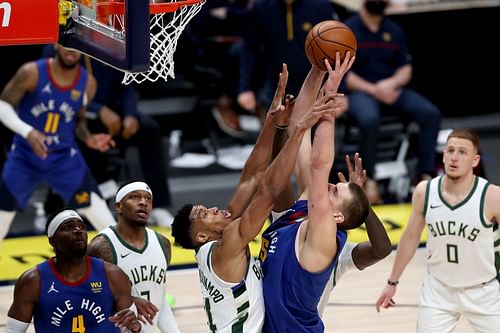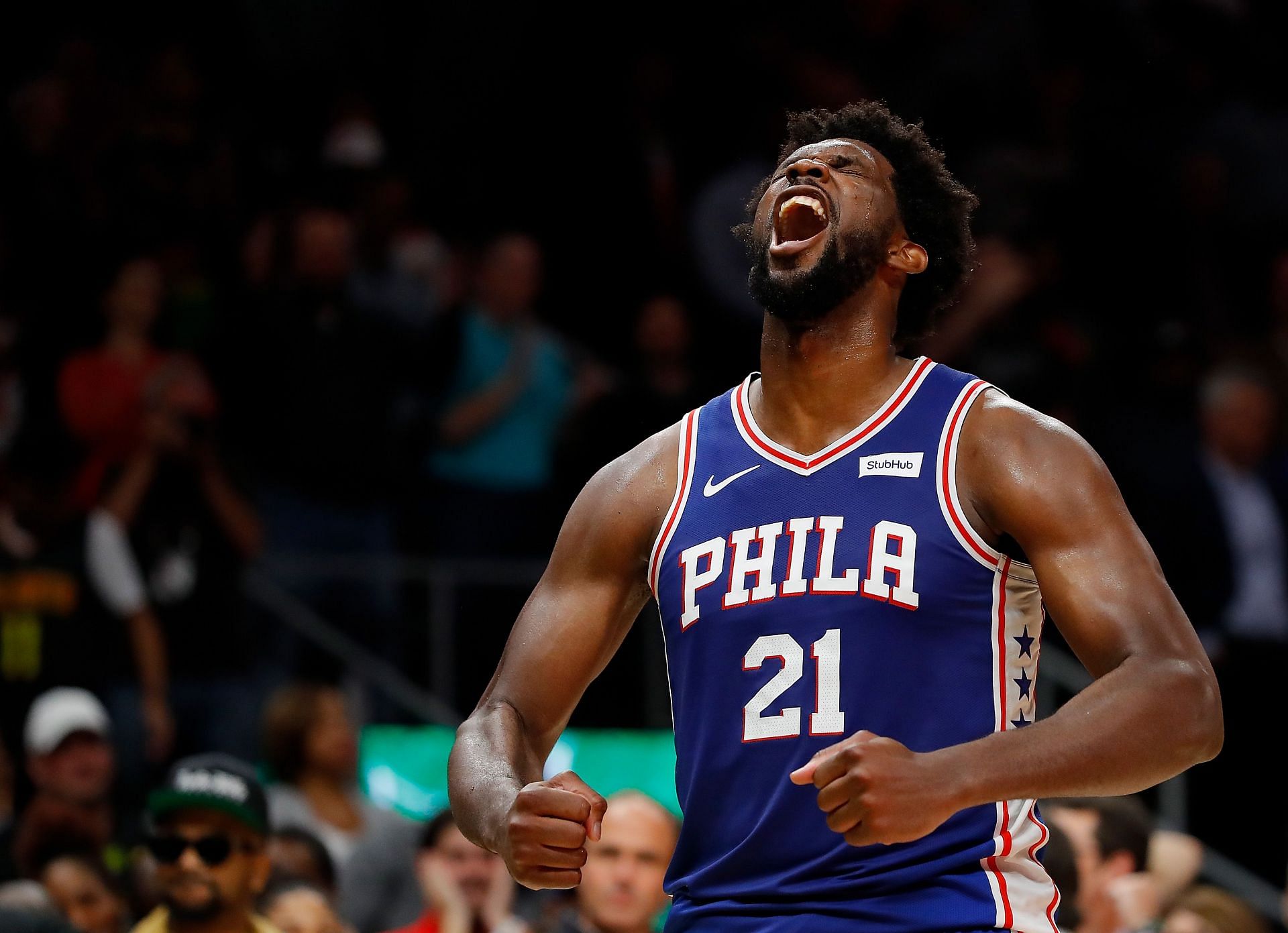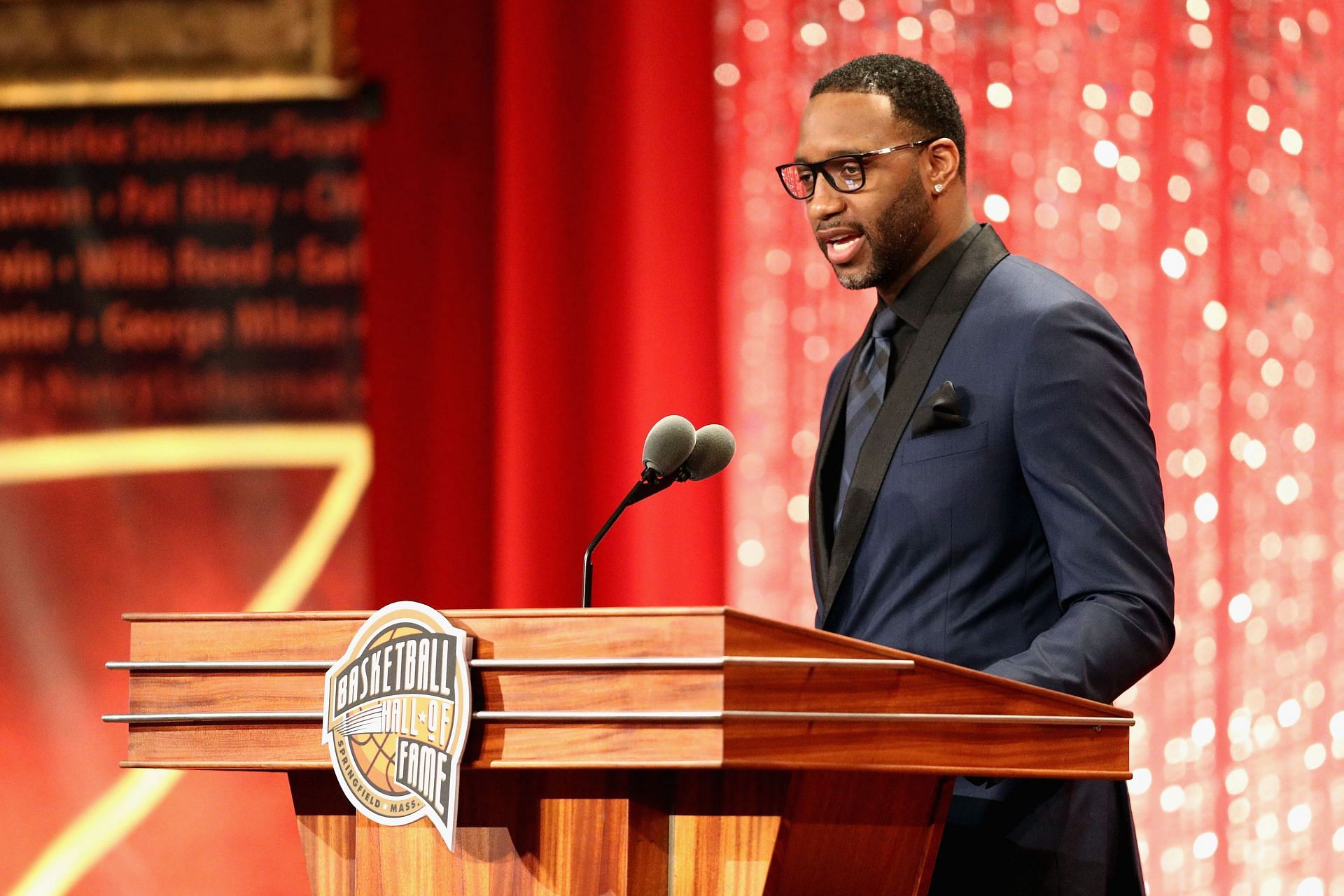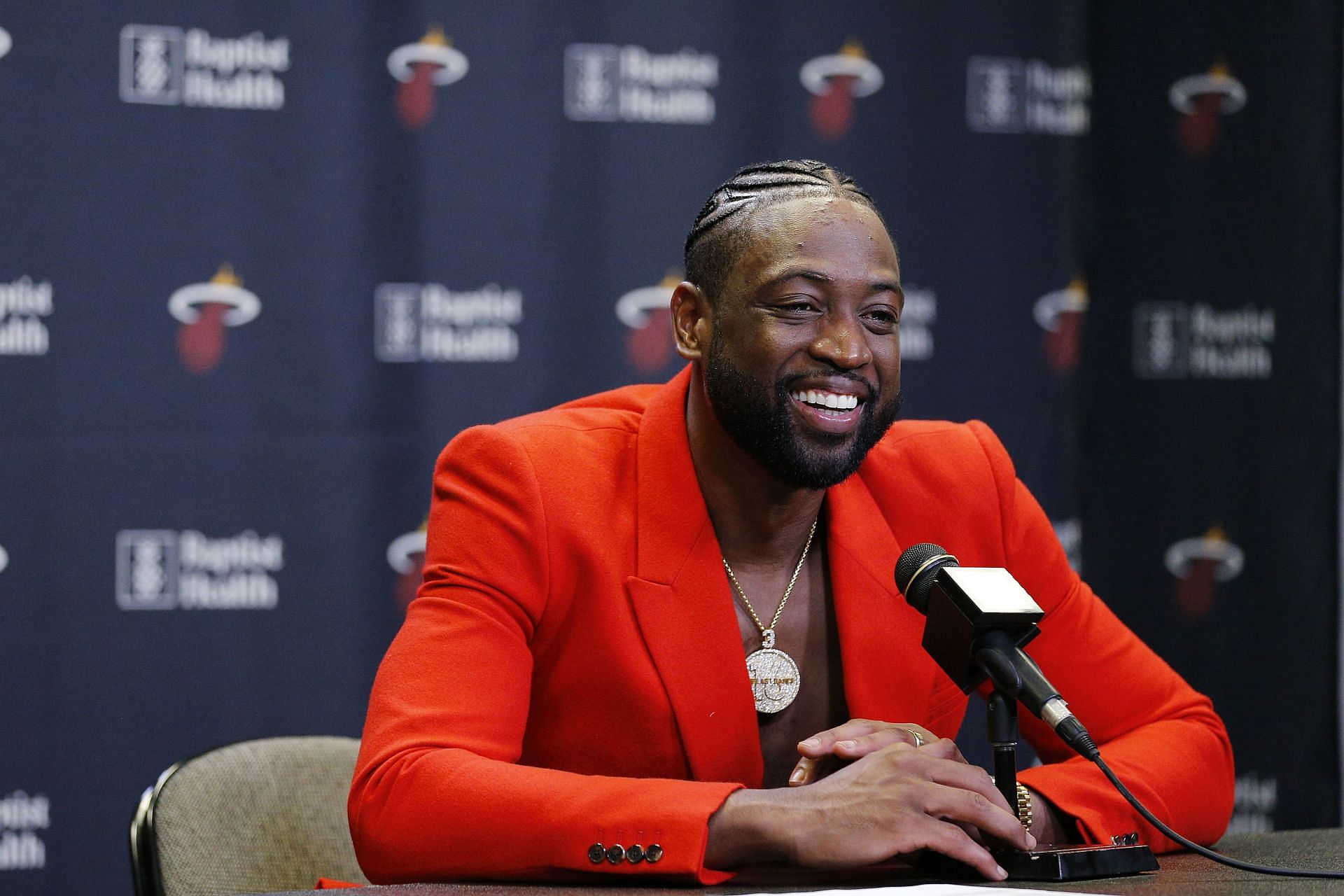
Listing NBA players who failed to win MVP award despite leading the league in Player Efficiency Rating in the 21st century

Could the Player Efficiency Rating (PER) be decisive in the NBA MVP battle? The race for the 2021-22 NBA MVP seems to be getting intense dribble by dribble. There are at least three candidates that would be worthy of receiving the award, perhaps even unanimously.
Giannis Antetokounmpo, Joel Embiid and Nikola Jokic are certainly in the top tier in terms of the NBA MVP discussion. With little to separate the trio, the PER might end up being one stat that could be decisive in this battle for an individual accolade.
The Player Efficiency Rating is an advanced stat that measures a player's statistical impact on the game. It takes into consideration every stat across the world, though it has a slight tendency to favor offensive talent.
Players who failed to win the NBA MVP award despite leading the league in Player Efficiency Rating in the 21st century
The Athletic's columnist John Hollinger of developed the PER.
This is Hollinger's own definition of the Player Efficiency Rating measurement:
"The PER sums up all a player's positive accomplishments, subtracts the negative accomplishments and returns a per-minute rating of a player's performance."
The Denver Nuggets' Nikola Jokic and Milwaukee Bucks' Giannis Antetokounmpo are leading the PER table so far this season, with both holding a 32.5 PER. Stunningly, both have bettered the single-season PER record in league history, set by Antetokounmpo in the 2019-20 season (31.9).

The PER leader for the regular season has won the NBA MVP on 12 occasions since the 2000-01 NBA campaign. In this article, we will give you a list of players who led the league in PER but didn't win the MVP award that year since the 2000-01 campaign.
Without further ado, let us take a look.
LeBron James - PER leader in 2007-08 & 2010-11 NBA seasons
LeBron James has led the NBA in Player Efficiency Rating in six different seasons throughout his illustrious career. He's won the MVP award four times (2008-09, 2009-10, 2011-12, 2012-13) but has led the league twice in PER without winning the trophy. This is rare, especially in recent years.
James' first year leading the NBA in PER came in the 2007-08 season (29.1). He put up 30 points (league-high), 7.9 rebounds and 7.2 assists per game for the Cleveland Cavaliers in 75 games that season. But Kobe Bryant won the 2007-08 MVP award ahead of the Cavs star.
Derrick Rose did the same in the 2010-11 campaign, when James again led the league in PER (27.2) and arguably had the strongest case for the regular-season MVP award.
Shaquille O'Neal - PER leader in 2000-01 & 2001-02 NBA seasons
Shaquille O'Neal's most dominant period in the NBA came between the 1999-00 and 2001-02 seasons. His LA Lakers side won three consecutive titles and O'Neal put up extraordinary numbers year after year.
In 2000, he won the regular-season MVP and led the league in PER. He held the PER crown for the next two seasons as well, but could not land a second MVP trophy.
In the 2000-01 campaign, O'Neal led the league with a 30.2 PER, but Allen Iverson took MVP honors. Meanwhile, Tim Duncan won the MVP award in the 2001-02 season, though Shaq led the league in PER (29.6).
Overall, O'Neal led the league in Player Efficiency Rating five times in his career, the fifth most in league history.
Tracy McGrady - PER leader in 2002-03 NBA season

Tracy McGrady's best regular-season performance came in the 2002-03 campaign, when he played for the Orlando Magic. That year, he put up a career-high (and league-high) 32.1 points, along with 6.5 rebounds and 5.5 assists per game.
Moreover, T-Mac led the league in Player Efficiency Rating with 30.2, but the San Antonio Spurs' Tim Duncan won his second consecutive NBA MVP. McGrady finished in fourth place in the vote as his Orlando Magic finished only eighth in the Eastern Conference with a 42-40 record.
Kevin Garnett - PER leader in 2004-05 NBA season
Kevin Garnett won the Most Valuable Player award once in his career during the 2003-04 campaign with the Minnesota Timberwolves. He led the league in Player Efficiency Rating during his MVP-winning season, and followed it up by doing the same in the 2004-05 campaign (28.2).
However, the 2004-05 regular-season MVP award went to electric point guard Steve Nash, who led the Phoenix Suns to a league-best 62-20 record. KG led the NBA in rebounding as well that season, but his T-Wolves missed the postseason after putting up a 44-38 record.
Dirk Nowitzki - PER leader in 2005-06 NBA season
Dirk Nowitzki played a key role in leading the Dallas Mavericks to a franchise record of 67-15 in the 2006-07 NBA regular season. But prior to that, he led the league in Player Efficiency Rating in the 2005-06 campaign, while also leading his team to a 60-22 win-loss record.
Nowitzki averaged a career-high 26.6 points per game, along with 9.0 rebounds and 2.8 assists per game with a 48/40/90 shooting split. However, Steve Nash won his second successive MVP award after his Phoenix Suns finished second in the West.
Dwyane Wade - PER leader in 2006-07 NBA season

Coming off winning his first NBA title and the Finals MVP award in the 2005-06 campaign, the Miami Heat's Dwyane Wade had a great 2006-07 season. However, he missed over 30 games due to injury.
Still, Wade's minutes allowed him to qualify for the Player Efficiency Rating table, and he led the league with a 28.9 PER, the second-highest of his entire career. However, Dirk Nowitzki won the MVP award that year after an extraordinary regular-season for the Dallas Mavericks.
Anthony Davis - PER leader in 2014-15 NBA season
Anthony Davis has always been near the top of the Player Efficiency Rating. In fact, Davis has the third-highest Player Efficiency Rating for a career in NBA history (26.9), only behind Michael Jordan (27.9) and LeBron James (27.3).
However, the eight-time All-Star has led the NBA in PER only once. Davis achieved this in his third campaign in the league with the New Orleans Pelicans. AD made it to the postseason twice with the Pels, and the first such season came after he performed tremendously in the 2014-15 campaign.
That year, Davis averaged 24.4 points and 10.2 rebounds, and led the league with 2.9 blocks per game. That effort put him at the top of the Player Efficiency Rating leaderboard with a 30.8, the highest of his career so far. However, Stephen Curry picked up the MVP award after leading the Golden State Warriors to a 67-15 record and the Championship.